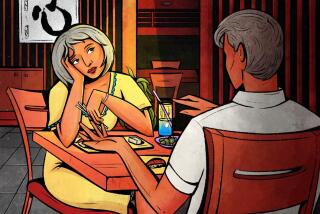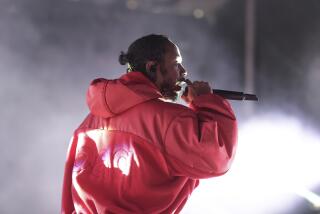How Prince became royal

Here are things you may not have known about Prince: In high school, he was a decent basketball player. “Amadeus” was at one point his favorite movie. And he may not have believed that Ronald Reagan suffered from Alzheimer’s disease.
These tidbits, and others, emerge in Touré’s new book about the enigmatic pop star, “I Would Die 4 U.” But if the author (and MSNBC host) presents them with a hunter’s pride, he is mostly chasing bigger game here, bypassing the minutiae of biography on his way to figuring out, as his subtitle puts it, why Prince became an icon.
It’s a well-timed expedition, with the musician selling new tracks online and playing shows such as the late-night thriller he put on last month at the South by Southwest music festival in Austin, Texas. (Prince is scheduled to hit the Grove of Anaheim on May 7 and 8.)
And it’s well organized. Touré divides the book into three sections, each of which addresses a different aspect of Prince’s work: its sexual content, its religious imagery and its connection to a post-boomer generation shaped by divorce. His premise — laid out through interviews, observations and close readings of songs such as “1999” and “If I Was Your Girlfriend” — is that Prince’s megastardom came as a result of his ability to synthesize those themes for an audience knee-deep in personal and political contradiction.
“Prince becomes successful,” Touré writes, “because his message is so attractive to so many: that identity is fluid, that gender and race are not defined boxes, but are malleable enough to let someone sit inside and outside them at the same time and be whatever they want to be.”
Refreshingly, that insistence on Prince’s importance doesn’t push “I Would Die 4 U” into pop-culture hagiography: Touré has plenty to say, both firsthand and via friends and associates, about how difficult the artist can be to deal with. For Prince, as in church, there is no pleasure without pain.
I Would Die 4 U
Why Prince Became an Icon
Touré
Atria: 160 pp., $19.99
More to Read
Sign up for our Book Club newsletter
Get the latest news, events and more from the Los Angeles Times Book Club, and help us get L.A. reading and talking.
You may occasionally receive promotional content from the Los Angeles Times.








